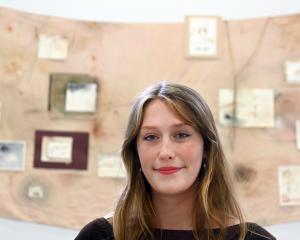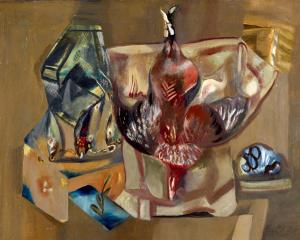''We didn't want to do a traditional Macbeth; we wanted to put our own spin on it,'' he said.
It is set in Dunedin in the mid-26th century, in a semi-post-apocalyptic environment, possibly after a pandemic or plague. The costumes, by Sophie Welvaert, are futuristic with aspects of steampunk.
''An end event has happened and people are just starting to rebuild their lives again and you have little groups of people who are pulling themselves out and re-establishing themselves,'' Neill said.
Instead of at Inverness, Macbeth's castle is Cargills and Macduff has taken up residence in the town hall. A wood - Burnham wood - has sprung up where South Dunedin is now and envelops Macbeth's Cargills castle, he said.
Neill was delighted to find 35 people turned up for the auditions, and as many were female, he decided to take advantage of the talent available and change the gender of some of the characters. Instead of a king there is a queen, Banquo is a female and some of the actresses play roles as boys.
However, the genders of the main characters have not been changed as an important theme in the play is the dynamic between Macbeth and Lady Macbeth, who plays him like a fiddle. Her death, which is not normally shown, takes place on stage, Neill said.
''She's probably one of the most malfeasant characters that Shakespeare wrote. She's striving to be queen.''
Neill also wanted to show the witches as more malicious than they are usually played.
''I've brought them back towards the end with the hope of gaining a bit of empathy for Macbeth, because he was taken down a shoddy road.
"At the end, I'd like the audience to go, 'Oh, poor Macbeth'. I didn't want everybody to leave the theatre hating Macbeth,'' he said.
The director also wanted to explore the concept of free will in the play. The witches put a path in front of Macbeth and he runs with it, but ultimately he didn't have to, Neill said.
''We are left thinking, do we have free will? Is this something we are allowed to have or is our life predestined and we are just along for the ride, so to speak.
"It's pretty clear within Macbeth, that he could easily have got to be the king if he had just waited.
"But with all the information the witches fed him, he was almost self-inclined to follow that path in order to get where he got.''
See it
Macbeth, by William Shakespeare and directed by Dale Neill, opens on October 17 at the Globe Theatre, 104 London St, Dunedin, as part of the Dunedin Celtic Arts Festival, and runs until October 26.












